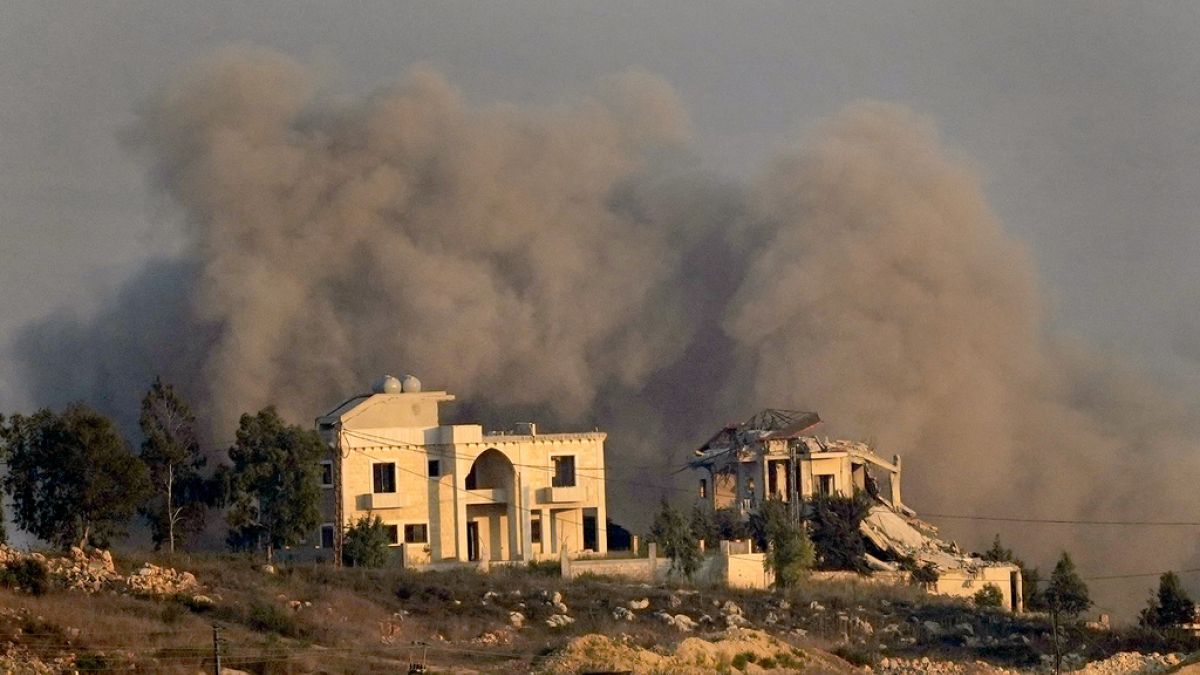Hezbollah recently launched dozens of rockets into Israel, marking the farthest strike yet in nearly a year of exchanges between the two sides. The group fired a longer-range projectile that set off air raid sirens in Tel Aviv and central Israel. In response, Israel said it intercepted the rocket, and there were no reports of casualties or damage. Additionally, the Israeli military targeted Hezbollah sites, including weapons storage facilities, and destroyed a building in southern Lebanon that had launched a missile toward Tel Aviv. This escalation came after Israel killed a top Hezbollah commander and carried out a two-day bombing campaign that resulted in more than 560 deaths and the displacement of thousands of people in southern Lebanon.
Families who fled the violence in southern Lebanon sought refuge in Beirut and Sidon, sleeping in schools, cars, parks, and along the beach. Some even attempted to leave the country, causing a traffic jam at the border with Syria, as they feared an escalating conflict between Hezbollah and Israel. One displaced resident, Issa Baydoud, expressed frustration over Israel’s targeting of civilians and argued that his village had to evacuate due to the attacks. The military spokesperson for Israel stated that they aim to keep the operations in Lebanon as short as possible, despite the need to be prepared for a potentially longer conflict. The ongoing tensions between Israel and Hezbollah have seen an increase in rocket attacks, airstrikes, and targeted killings, prompting concerns of a wider operation.
The UN Security Council scheduled an emergency meeting to discuss the situation in Lebanon, following the staggering toll of casualties from Israeli strikes. Lebanon’s health ministry reported over 500 deaths, including children and women, with thousands more wounded. This devastating toll comes shortly after Lebanon experienced a deadly attack on communication devices, which killed dozens and injured numerous civilians. The country blamed Israel for the attack, although Israel neither confirmed nor denied responsibility. With tensions at a high between the two sides, the international community is closely monitoring the situation and seeking ways to de-escalate the conflict.
As the conflict between Israel and Hezbollah continues to escalate, the fear of an all-out war looms large in the region. The recent rocket attacks by Hezbollah marked a significant escalation in violence, particularly with the targeting of Tel Aviv and central Israel. In response, Israel has ramped up its military operations in southern Lebanon, resulting in hundreds of casualties and displacing thousands of individuals. The displacement of families and the growing number of civilian casualties highlight the devastating impact of the conflict on the people of Lebanon, who are already reeling from previous attacks and ongoing tensions in the region.
The situation in Lebanon remains volatile and precarious, with civilians bearing the brunt of the violence between Israel and Hezbollah. The international community is closely watching the developments in the region, particularly as the conflict shows no signs of abating. The UN Security Council’s emergency meeting underscores the urgency of addressing the crisis and finding a peaceful resolution to prevent further loss of life and displacement. As both sides continue to exchange fire and engage in military operations, the need for diplomacy and de-escalation is more critical than ever to prevent a full-scale war that could have far-reaching consequences for the entire region. Efforts must be made to end the cycle of violence and find a lasting solution to the conflict between Israel and Hezbollah to ensure the safety and security of all affected by the ongoing hostilities.










